Lempuyang Temple, one of Bali’s oldest and holiest Hindu temples, is located on the slopes of Mount Lempuyang in East Bali. It’s a significant spiritual destination for the Balinese people and a place of pilgrimage. The temple is best known for the iconic “Gate of Heaven,” a split gateway that perfectly frames Mount Agung, Bali’s tallest volcano, creating a picturesque and almost ethereal scene for photographers and travellers alike. The temple is part of the Sad Kahyangan Jagad, Bali’s six main temples, making it a key spiritual site on the island.
Location
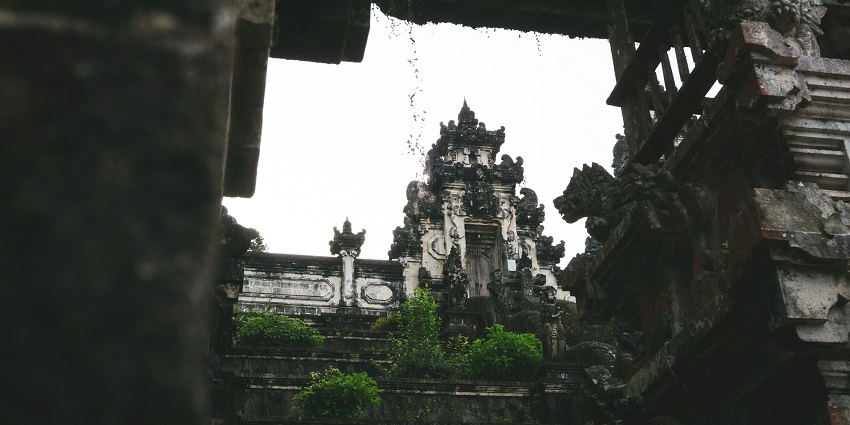
Lempuyang Temple is in the eastern region of Bali, near the village of Karangasem. It sits on the slopes of Mount Lempuyang, approximately 90 km from Bali’s capital, Denpasar. The temple is nestled in the highlands, offering sweeping views of Mount Agung and the surrounding landscapes. It is one of the most visited temples in Bali due to its spiritual significance and natural beauty.
Suggested Read: Indonesia Temples For Every Traveller To Visit And Explore
How To Reach
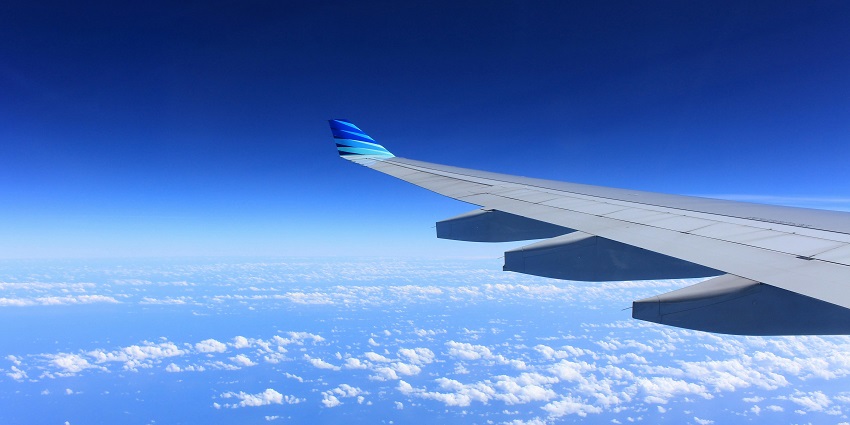
Photo: Pixabay / Pexels / Image For Representation Only
By Air: The nearest airport is Ngurah Rai International Airport in Denpasar, located about 90 km away.
By Train: Bali does not have a railway system, so train travel is not an option. Visitors rely on road transport to reach the temple.
By Road: Lempuyang Temple Indonesia is accessible by road from all major towns and cities in Bali. If you’re staying in Ubud, Candidasa, or Amed, the journey by car will take about 1.5 to 2 hours.
Things To Do
1. Hike To The Summit
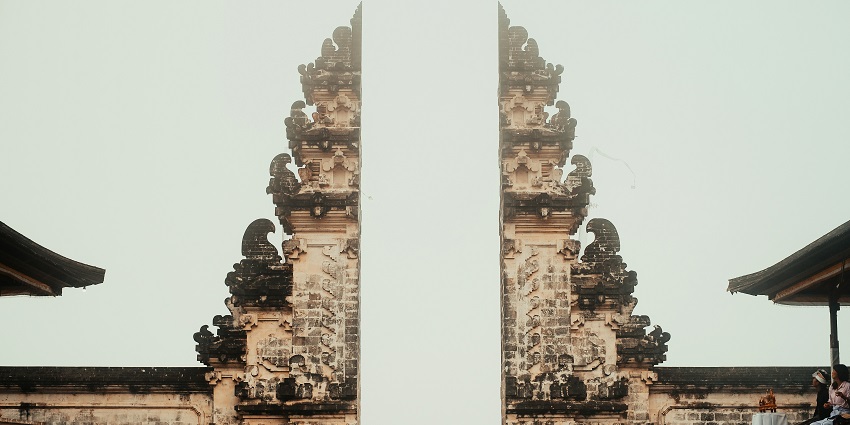
Lempuyang Temple offers a challenging yet rewarding hike up 1,700 steps to the main temple. The ascent is steep, but along the way, you’ll pass through forests and smaller temples. The views of Mount Agung and the surrounding valleys become increasingly spectacular as you climb. Lempuyang Temple offers a challenging yet rewarding hike up 1,700 steps to the main temple. The ascent is steep, but along the way, you’ll pass through forests and smaller temples. The views of Mount Agung and the surrounding valleys become increasingly spectacular as you climb.
Suggested Read: Top Indonesia Beaches Where You Can Soak Up The Sun
2. Capture The Iconic Gate Of Heaven Photo
Photo: Guitar photographer / Shutterstock
One of the most popular activities at Lempuyang Temple is capturing a photo at the “Gate of Heaven.” This split gateway perfectly frames Mount Agung, creating the illusion of standing at heaven’s door. It’s recommended to visit early in the morning to avoid long lines for photos. Many visitors find that their experience at the Gate of Heaven is not just about the photograph but also about the sense of connection to the sacredness of the site and its breathtaking surroundings.
Places To Visit In And Around Lempuyang Temple
1. Tirta Gangga Water Palace
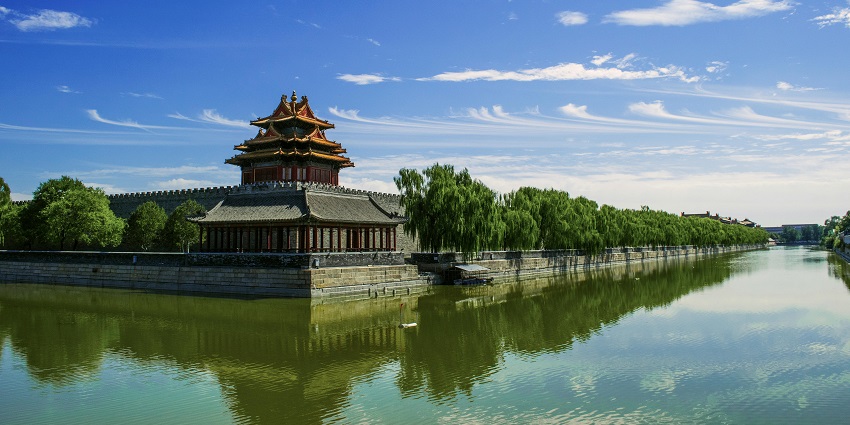
Photo: zhang kaiyv / Pexels / Image For Representation Only
A former royal palace, Tirta Gangga is known for its beautifully landscaped gardens, fountains, and spring-fed pools. Built in 1948 by the last King of Karangasem, the palace is renowned for its tranquil atmosphere, lush gardens, and intricate water features. The highlight of the palace is its tiered fountains, which rise majestically from the centre of the garden, surrounded by lotus ponds and stepping stones that invite visitors to wander amidst the beauty. It’s an ideal spot to relax and cool off after a visit to Lempuyang Temple.
Best Time To Visit: Early morning to avoid the heat and crowds
Entry Fees: Approximately IDR 40,000
Suggested Read: Take A Dip Under The Cascading Waterfalls In Ubud For A Rejuvenating Experience
2. Taman Ujung Water Palace
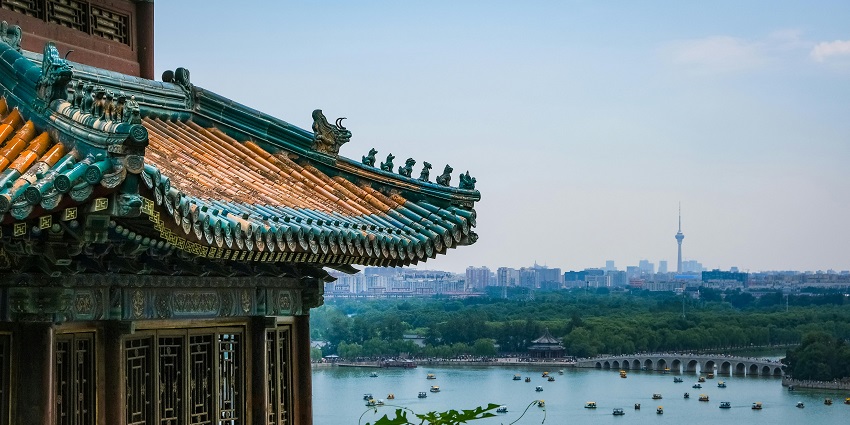
Photo: Magda Ehlers / Pexels / Image For Representation Only
Also known as the Ujung Water Palace, this scenic site features large pools, beautiful bridges, and lush greenery, making it a perfect spot for photography and quiet contemplation. Originally built in the early 20th century by the King of Karangasem, the palace showcases a blend of Balinese and European architectural styles. The expansive grounds are adorned with large pools, beautifully arched bridges, and intricate stone carvings, creating an enchanting environment for visitors.
Best Time To Visit: Late afternoon when the light is soft for photography
Entry Fees: Approximately IDR 50,000
3. Besakih Temple
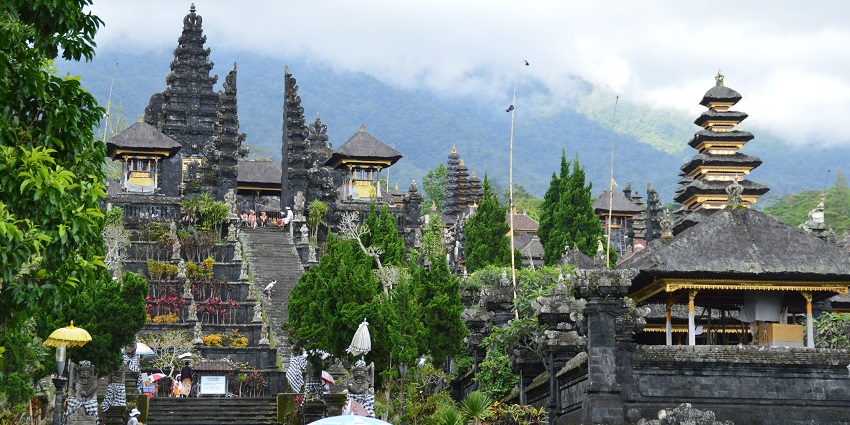
Bali’s largest and most important temple, Besakih, is about an hour from Lempuyang Temple. Known as the “Mother Temple,” it’s a spiritual hub for Balinese Hindus. The complex consists of multiple temples spread across the slopes of Mount Agung. Visitors are welcomed by stunning terraced landscapes and breathtaking views, enhancing the temple’s serene and spiritual atmosphere. The main temple, Pura Penataran Agung, features magnificent multi-tiered pagodas that reach toward the sky, symbolising the connection between the divine and earthly realms.
Best Time To Visit: During temple ceremonies and festivals
Entry Fees: Approximately IDR 60,000 (USD 4.10)
Suggested Read: The Ultimate Guide To The Best Places To Visit In Indonesia
Where To Stay
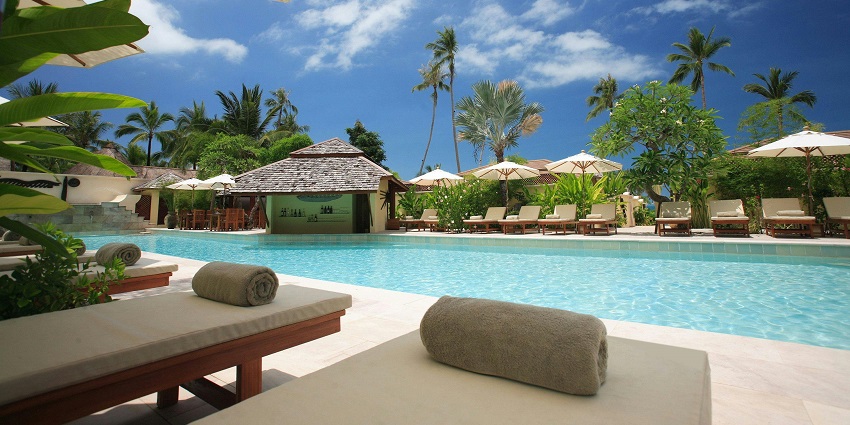
Photo: Thorsten technoman / Pexels / Image For Representation Only
There are numerous accommodation options near Lempuyang Temple, ranging from budget guesthouses to luxurious resorts. Homestays and guest houses in nearby Karangasem and Amed offer affordable accommodation. These include simple rooms with basic amenities and a chance to experience Balinese hospitality. For those seeking a more luxurious experience, resorts such as Alila Manggis and Amankila offer stunning ocean views, private villas, and spa services. These resorts cater to travellers looking for both comfort and proximity to cultural sites.
Where To Eat

Photo: Cats Coming / Pexels / Image For Representation Only
Food options near Lempuyang Temple are diverse, offering both local and international cuisine. Try local warungs around Karangasem or Candidasa. These small, family-run eateries offer traditional Balinese dishes like nasi campur (mixed rice), ayam betutu (spiced chicken), and sate lilit (minced fish satay).In Amed and Candidasa, you’ll find a mix of beachfront cafes offering fresh seafood, Western dishes, and Indonesian favourites. These relaxed eateries provide a scenic view of the ocean as you dine.
Suggested Read: Best Food In Bali To Experience The Balinese Cuisine
Best Time To Visit
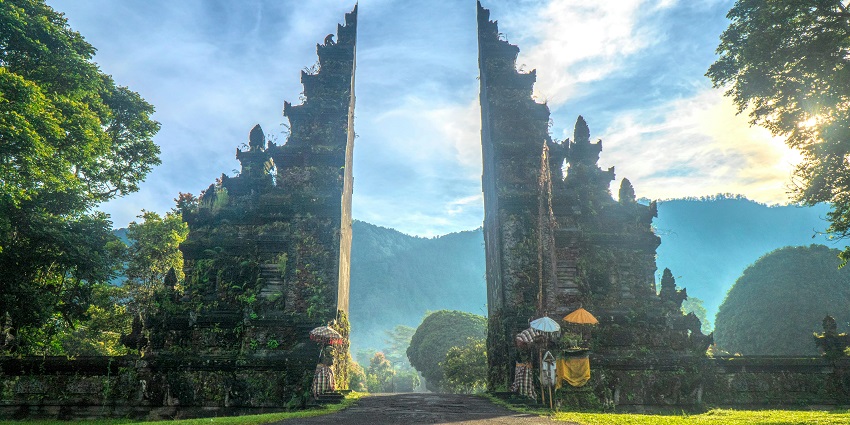
Photo: Oleksandr P / Pexels / Image For Representation Only
The best time to visit is from April to October, during Bali’s dry season. The weather is pleasant with clear skies and cooler temperatures, making it ideal for outdoor activities such as hiking and photography. Visitors can explore Bali’s natural beauty while enjoying comfortable weather conditions. Additionally, temple festivals and ceremonies occur throughout the year, providing an opportunity to experience traditional Balinese rituals. This combination of favourable weather and cultural events makes this period perfect for a memorable visit.
Other Factors To Consider

Photo: Kaboompics.com / Pexels / Image For Representation Only
Tips For Travellers
- To beat the crowds and avoid long queues at the Gate of Heaven, arrive early in the morning.
- If you plan to hike to the summit, carry plenty of water and snacks to stay hydrated.
- Be mindful of local customs, and always ask for permission before taking photos of religious ceremonies or local people.
- For the best Lempuyang Temple photos, aim to visit early in the morning for sunrise.
Suggested Read: Indonesian Islands You Should Visit For Breathtaking Views
Lempuyang Temple is more than just a beautiful tourist destination; it’s a spiritual journey that offers a deeper connection to Balinese culture and nature. Whether you’re looking to capture iconic photos, embark on a serene hike, or experience Bali’s rich spiritual traditions, Lempuyang Temple should be at the top of your Bali itinerary. Ready to explore the sacred beauty of Lempuyang Temple? Plan your trip with TripXL today to experience one of Bali’s most iconic temples.
Cover Photo: Priyank Pathak / Unsplash


 WhatsApp
WhatsApp
 Twitter
Twitter









